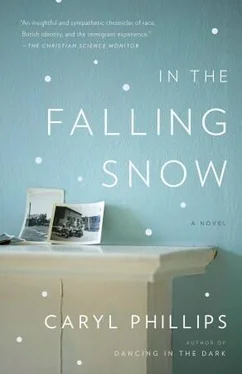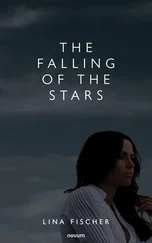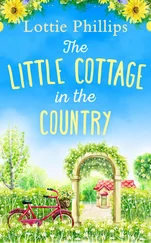The following afternoon he waits in the doorway of Dewhurst’s, the butcher’s. It is half-day so the shop is locked, but the red plastic awning protects him from the drizzling rain. Cars slosh by, throwing thin sheets of water towards the pavements and causing young and old pedestrians to move quickly away from the kerb. He ought not to be here, he knows this, but he sat up until three o’clock in the morning with a notepad in his lap making notes about Wynton Marsalis and wondering if he should not at least consider including a jazz epilogue to his book. Something brief, a nod in the direction of the field, a half-dozen footnoted paragraphs that suggest familiarity without expertise. Around the edges of the pages in his notebook he found himself writing her name in neat black capitals: DANUTA. There was no surname to root the romantic, French-sounding, Danuta in Polish soil, but for some reason he was sure that hers would be the most jaw-breaking of Polish names; a chain of late consonants strung together with a total disregard for vowels. By the time he put down his notepad, and began to slouch his slow way towards the bedroom, he realised that the girl held some kind of grip on his imagination, although he was too fatigued to try and fathom the source of his fascination.
The first students begin to walk down the steps of the bleak stone building, their bulky bags hooked over one shoulder, their hands forming visors against the rain. Somebody should tell these foreigners that it is always raining in England, and that they should buy an umbrella before they even think about a travel pass, or cheap jeans, or a copy of Time Out . After all, an umbrella is a key part of the English uniform. He glances at his watch. Four o’clock precisely, and so he seems to have guessed right. And then he sees her talking to a tall blond boy who is Germanic in appearance, but he could also be from anywhere in Scandinavia, or from one of the former Soviet countries. The boy is smiling, but there does not appear to be anything intimate about their encounter. As they reach the bottom of the half-dozen steps the boy punches her playfully on the arm and then peels off and dashes towards the bus stop where a double-decker bus, its headlights already bright in this late afternoon gloom, is about to depart.
He steps out from beneath the red awning and strides across the road, and he can now see that she is dressed in the same clothes as yesterday, including the uninspiring black woollen tights. Her rucksack dangles casually from one hand, and he notices that she has about her a distinct air of general dishevelment that he is beginning to believe is carefully cultivated.
‘I thought you might like to go for a coffee. Or a drink if you prefer.’ She turns to face him and is unable to disguise her surprise. ‘There are quite a few pubs around here. I can’t guarantee that they’re much better than the Queen Caroline, but we can try.’
Confusion clouds her face, as though suddenly the English language has abandoned her. He can see that she has no words to place on her tongue.
‘Think of it as another free conversation class. Better than going through the Evening Standard in that grubby library, right?’
She waits at a table by the window while he loads a handful of pink sachets of sugar, and some small plastic containers of milk, on to a tray. He edges around the crush of uniformed school kids and slides into the bolted plastic chair. He shakes his head as he lifts both coffees clear of the paper-lined tray, and then he unloads the sugar and milk on to the table before shoving the tray to one side.
‘Let’s be honest. It’s all McDonald’s is good for. Coffee and the bathrooms. At least they try and keep them clean.’
‘The bathrooms do not clean themselves. Somebody has to clean them, do you know this?’
‘Okay, fair point. At least somebody keeps them clean.’
He watches as she rips open first one sachet of sugar, then another, and eventually she pours the contents of three envelopes into her cup. She finds a thin red straw among the superfluous sugar and milk, and she quickly stirs with it and then tosses the straw on to the tabletop. Like him she takes no milk, but unlike him she takes sugar; plenty of it.
‘How was the language school today?’
‘It was the same as yesterday.’
‘And how was it yesterday?’
She shrugs her shoulders and stares out of the window. It has begun to rain heavily and the raindrops tattoo loudly against the window. Umbrellas have mushroomed everywhere, but he is sure that she is looking at nothing in particular.
Has he made a mistake? If so then he is sorry, but he is keen to make everything all right, that is all. He knows that he should not have tried to kiss her, but right now he just wants to spend some time with her. Yes, in a sense, win her over. She takes a loud sip of her coffee. What should he say? Danuta, I like you, but I am sorry. She glances at him, then quickly turns back to the window. The words are in his head. Danuta, I just want to say sorry for last night, but if you want to finish your coffee and leave then that’s fine with me. I’m not being pushy or anything. She turns from the window and looks at him quizzically, as though baffled by his uncharacteristic silence. He feels compelled to speak.
‘Was the blond guy your boyfriend? I didn’t want to embarrass you, or cause you any difficulty, so I backed off until he ran for his bus.’
‘You were spying on me?’
‘I wouldn’t call it spying. I’m not the secret police, you know.’
‘You are not funny. In my country this is still not a joke, Mr Keith.’
‘Ah, so at least you remember my name.’
‘Of course I remember your name. I met you yesterday. How can I forget your name?’
She shakes her head and once again stares out of the window. The puddles reflect red and white light from the cars, and red, amber and green from the traffic lights. The slack water rainbow is surprisingly beautiful. He has to take charge, yet be sensitive, otherwise he realises that the whole encounter will quickly descend into argument and she will leave. She seems to like it when he leads, for this perhaps gives her the space to be quirky and witty. This being the case, he understands that now is not the time to let the conversation drift. He takes a sip of the bitter McDonald’s coffee and then he places the plastic cup back on the tray. He stares at her, but still she will not meet his eyes, so he picks up the discarded red straw and drops it into his abandoned coffee.
‘Shall we go back to my flat? I’ve got better coffee than this, and at least it’s more comfortable.’
‘Comfortable?’
She picks up her cup and takes a noisy sip.
‘Well, this is McDonald’s. You know, everything is secured to the floor, no reclining allowed. It’s not exactly relaxing in here. And it’s cold, particularly every time someone opens the door, so that’s what I mean by more comfortable.’
He points through the window.
‘We can get that bus and be at my place in five minutes.’
The following day he works well on the book. His only interruption is a call from Ruth, who wants to know if he has taken home a file about racial violence in Cardiff. Apparently, she needs to give the file to a researcher who is putting together a piece about the cultural insularity of South Wales. He asks Ruth which researcher, and is relieved when she does not mention Yvette’s name. There is a pause and then, lowering her voice, Ruth asks him how he is doing. She seems embarrassed.
‘I’m all right, Ruth,’ he says. ‘Recharging my batteries. You know I haven’t had a break from work in over twenty years. I don’t mean holidays or anything like that, I mean a real break. So I’m just exploring other things. I’d almost forgotten that I had any other interests or talents.’
Читать дальше









![Unknown - [Carly Phillips] The Bachelor (The Chandler Brothe(Bookos.org) (1)](/books/174132/unknown-carly-phillips-the-bachelor-the-chandle-thumb.webp)


